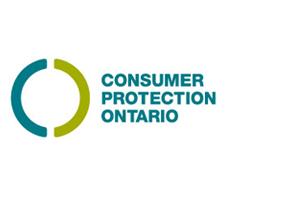Consumer complaints and enforcement
![]() Learn how the government handles consumer complaints and what can happen if you violate consumer rights under the Consumer Protection Act.
Learn how the government handles consumer complaints and what can happen if you violate consumer rights under the Consumer Protection Act.
The complaint process
When we receive a consumer complaint about a business, we take a number of steps to:
1. Determine if the consumer’s rights may have been violated under the Consumer Protection Act, 2002 or other consumer protection laws for which the Ministry of Public and Business Service Delivery and Procurement is responsible.
- If not, we explain this to the consumer and, where appropriate, direct them to other ministries or organizations that may be able to help.
- If so, we move to step 2.
2. Contact the business on behalf of the consumer and try to find a solution.
- If the dispute is resolved, the process ends.
- If the dispute is not resolved, we move to step 3.
3. Respond to the possible violation by promoting compliance and/or enforcing the act. Actions can include:
- posting the business name and details of the dispute on the Consumer Beware List
- conducting inspections and investigations and, where appropriate, issuing compliance orders, filing charges and/or pursuing a prosecution.
The Consumer Beware List
The Consumer Beware List lets people search for businesses and check if they’ve had any charges, convictions or compliance notices relating to consumer protection law within the last 790 days (26 months).
Descriptive transcript: Introduction to the Consumer Protection Act
A business can be added to the list if it does not:
- respond to us after we try to contact them twice about a consumer complaint
- resolve the complaint to the consumer’s satisfaction or respond to the issues raised in the complaint
The information must stay on the Consumer Beware List for at least 21 months but not more than 27 months. Information relating to a charge will be removed if the business is found not guilty.
Inspection and investigation
The Ministry of Public and Business Service Delivery and Procurement has a team of inspectors who work to stop violations before they happen with education and awareness tools like warning letters and deficiency notices.
As part of a compliance inspection, these inspectors have the right to:
- enter a business
- examine documentation
- access electronic records
- make copies of documents
- ask questions relevant to their inspection
Anyone involved with the inspections must cooperate and cannot interfere with the process. People who interfere with an inspection may be prosecuted.
If a business doesn’t take appropriate action in response to a warning letter or deficiency notice, an inspector may issue a compliance order or take other enforcement action.
The ministry also has a team that investigates alleged violations. They determine if offences have been committed and, where appropriate, can lay charges.
Charges and prosecution
If found guilty of violating the Consumer Protection Act, 2002, an individual can be fined up to $50,000, or sentenced to up to two years less a day in prison. A corporation can be fined up to $250,000.
